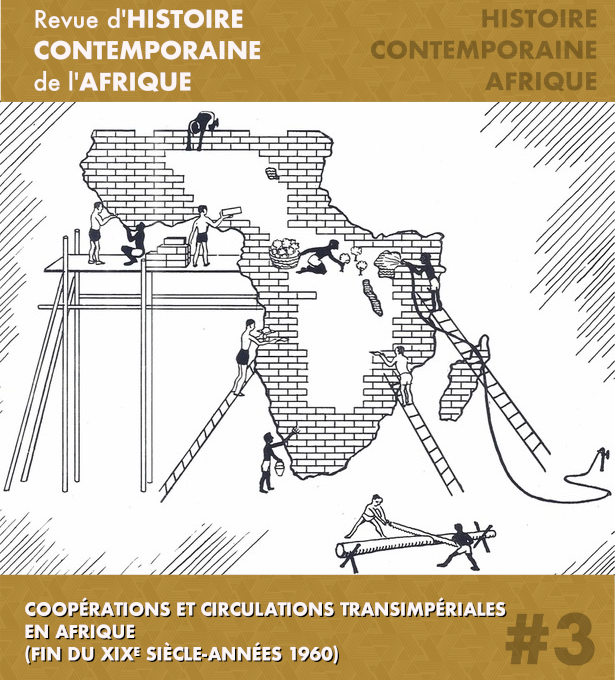Research and Development in the Portuguese Colonies of Africa
The impulse of the Interimperial Scientific Cooperation (1950-1962)
DOI:
https://doi.org/10.51185/journals/rhca.2022.0303Keywords:
Africa, development, inter-imperial cooperation, Portuguese colonial empire, scienceAbstract
The article analyses the impact of the collaboration between the colonial powers present in Southern Africa on the Portuguese scientific field. I argue that, since 1950, Portugal’s participation in the Commission for Technical Cooperation in Africa South of the Sahara (CCTA) and in its advisory body, the African Scientific Council (CSA), was decisive in the evolution of the scientific policy for the Portuguese colonies, lead to the creation of several research organizations and the training of specialists, accelerated the institutionalization of scientific research institutes in Angola and Mozambique and opened up new employment opportunities for scientists and technicians in the metropole and colonial territories. Trans-imperial cooperation was, in the Portuguese case, a mechanism to rapidly induce the expansion and strengthening of the national scientific community, confronted with its own weaknesses and constraints, with effects beyond Portugal’s departure from the CCTA in 1962.
References
Ágoas Frederico et Castelo Cláudia (2019), « Ciências sociais, diplomacia e colonialismo tardio: a participação portuguesa na Comissão de Cooperação Técnica na África ao Sul do Saara (CCTA) », Estudos Históricos, 32(67), pp. 410-428.
Barth Volker et Cvetkovski Roland (2015), « Introduction. Encounters of Empires: Methodological Approaches », in V. Barth et R. Cvetkovski (dir.), Imperial Co-operation and Transfer, 1870-1930: Empires and Encounters, Londres, Bloomsbury Academic, pp. 3-34.
Castelo Cláudia (2012), « Investigação científica e política colonial portuguesa: evolução e articulações, 1936-1974 », História, Ciências, Saúde – Manguinhos, 19(2), pp. 391-408.
Castelo Cláudia et Ágoas Frederico (2020), « Inter‐African cooperation in the social sciences in the era of decolonization: A case of science diplomacy », Centaurus, pp. 1-17.
Clarke Sabine (2007), « A Technocratic Imperial State? The Colonial Office and Scientific Research, 1940-1960 », Twentieth Century British History, 18(4), pp. 453-480.
Coghe Samuël (2015), « Inter-Imperial Learning and African Health Care in Portuguese Angola in the Interwar Period », Social History of Medicine, 28(1), pp. 134-154.
Cooper Frederick (1997), « Modernizing bureaucrats, backward Africans, and the development concept », in F. Cooper et R. Packard (dir.), International Development and the Social Sciences, Berkeley, University of California Press, pp. 64-92.
Cooper Frederick (2010), « La modernisation du colonialisme et les limites de l’empire », Labyrinthe, 35(2), pp. 69-86.
Cooper Frederick et Packard Randall (1997), « Introduction », in F. Cooper et R. Packard (dir.), International Development and the Social Sciences, Berkeley, University of California Press, pp. 1-41.
Costa J. Carrington da (1958), « A investigação científica e o ultramar português », Boletim da Sociedade de Geografia de Lisboa, 76(4-6), pp. 121-140.
Gruhn Isebill (1971), « The Commission for Technical Co-operation in Africa, 1950-1965 », The Journal of Modern African Studies, 9(3), pp. 459-469.
Havik Philip J. (2020), « Regional cooperation and health diplomacy in Africa: from intra-colonial exchanges to multilateral health institutions », História, Ciências, Saúde – Manguinhos, 27(supl.), pp. 123-144.
Havik Philip J. et Monteiro José Pedro (2021), « Portugal, the World Health Organisation and the Regional Office for Africa: From Founding Member to Outcast (1948-1966) », The Journal of Imperial and Commonwealth History, 49(4), pp. 712-741.
Hodge Joseph M. (2007), The Triumph of the Experts: Agrarian doctrines of development and the legacies of British colonialism, Athens, Ohio University Press.
Hodge Joseph M., Hödl Gerald, Kopf Martina (2014), Developing Africa: Concepts and Practices in Twentieth-Century Colonialism, Manchester, Manchester University Press.
Jerónimo Miguel Bandeira et Dores Hugo Gonçalves (2020), « Enlightened Developments? Inter-imperial Organizations and the Issue of Colonial Education in Africa (1945-1957) », in D. Matasci, M. B. Jerónimo et H. G. Dores (dir.), Education and Development in Colonial and Postcolonial Africa, Springer International Publishing, pp. 237-262.
Jerónimo Miguel Bandeira et Monteiro José Pedro (dir.) (2017), Internationalism, Imperialism and the Formation of the Contemporary World, Londres, Palgrave Macmillan.
Junta de Investigações do Ultramar (1959), « Relatórios das actividades dos organismos dependentes da Junta de Investigações do Ultramar », Anais, 14.
Krige John (dir.) (2019), How Knowledge Moves: Writing the Transnational History of Science and Technology, Chicago/Londres, The University of Chicago Press.
Lindner Ulrike (2015), « New Forms of Knowledge Exchange Between Imperial Powers: The Development of the Institut Colonial International (ICI) Since the End of the Nineteenth Century », in V. Barth et R. Cvetkovski (dir.), Imperial Co-operation and Transfer, 1870-1930: Empires and Encounters, Londres, Bloomsbury Academic, pp. 57-78.
MacKenzie John M. (2015), « European Imperialism: A Zone of Co-operation Rather than Competition? », in V. Barth et R. Cvetkovski (dir.), Imperial Co-operation and Transfer, 1870-1930: Empires and Encounters, Londres, Bloomsbury Academic, pp. 35-54.
MacVety Amanda Kay (2018), The Rinderpest Campaigns: a Virus, its Vacines, and Global Development, New York, Cambridge University Press.
Matasci Damiano (2020), « Internationalising Colonial Knowledge. Edgar Barton Worthington and the Scientific Council for Africa, 1949–1956 », The Journal of Imperial and Commonwealth History, 48(5), pp. 892-913.
Ribeiro Orlando (1950), Problemas da investigação científica colonial, Lisbonne, Junta de Investigações Coloniais.
Tilley Helen (2011), Africa as a Living Laboratory: Empire, Development, and the Problem of Scientific Knowledge, 1870-1950, Chicago/Londres, The University of Chicago Press.
Unger Corinna R. (2018), International Development: A Postwar History, Londres, Bloomsbury Academic.
Wagner Florian (2015), « Private Colonialism and International Co-operation in Europe, 1870-1914 », in V. Barth et R. Cvetkovski (dir.), Imperial Co-operation and Transfer, 1870-1930: Empires and Encounters, Londres, Bloomsbury Academic, pp. 79-104.
Wilhelm Lola (2020), « “One of the Most Urgent Problems to Solve”: Malnutrition, Trans-Imperial Nutrition Science, and Nestlé’s Medical Pursuits in Late Colonial Africa », The Journal of Imperial and Commonwealth History, 48(5), pp. 914-933.
Downloads
Published
How to Cite
Issue
Section
License
Some rights reserved 2022 Claudia Castelo

This work is licensed under a Creative Commons Attribution-NonCommercial 4.0 International License.





